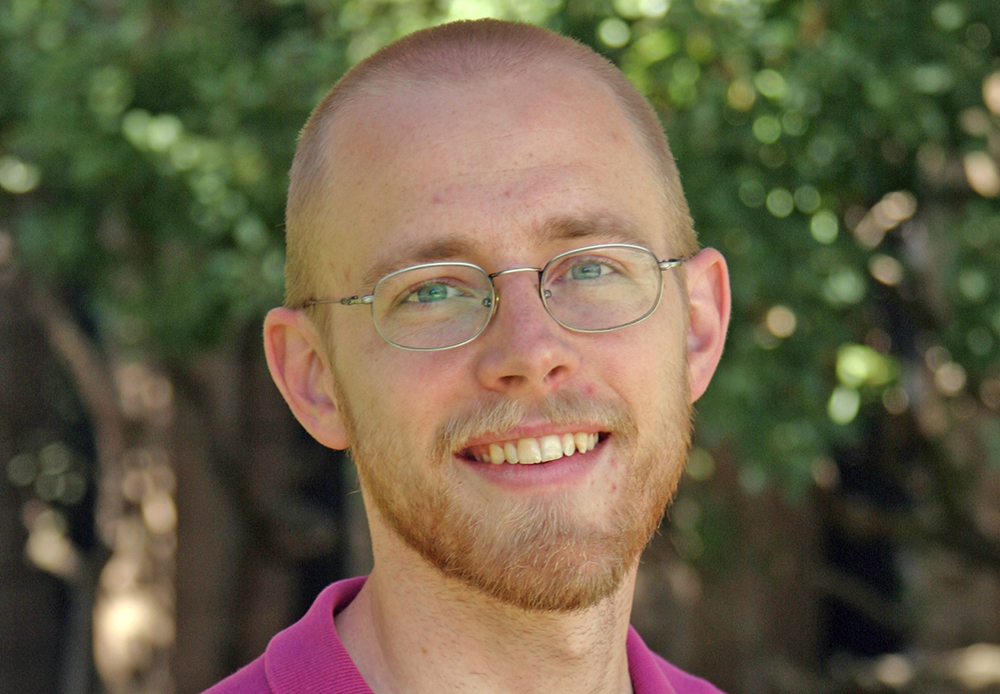ASA Fellow David Vosburg Fosters Science/Faith Dialogue
September 15, 2014
Harvey Mudd College Associate Professor of Chemistry David Vosburg has been elected a 2014 Fellow of the American Scientific Affiliation (ASA), an international network of Christians in the sciences who explore the relationship between science and Christianity and foster dialogue between two often opposing viewpoints. A longtime member of the group, Vosburg is the first Claremont Colleges faculty member to be honored with the distinction of Fellow.
“I joined the ASA as a PhD student because I was disappointed with many scientists’ inaccurate stereotypes of Christians as well as many Christians’ false generalizations about scientists,” says Vosburg, who is active in campus Christian fellowships and has written and spoken extensively on the relationship between science and religion. “As a member of both communities, I am a diplomat between scientists and people of faith.”
Founded in 1941, the ASA seeks to integrate, communicate and facilitate properly researched science and theology in service to the church and the scientific community. To that end, Vosburg believes healthy and productive conversations about the relationship between science and religion require dialogue, rather than debate or avoidance.
Vosburg notes that the National Academies of Science and the American Association for the Advancement of Science are also actively engaged in seeking dialogue and understanding between scientific and religious communities. “Dialogue can only flourish when we build trust, when we genuinely seek to understand others’ views, and when we do not root our responses in fear,” says Vosburg.
Bible and Evolution Conference
To encourage such conversations, Vosburg has planned an all-day conference Saturday, Oct. 25, at Harvey Mudd titled “The Bible, Evolution, and Human Origins: Starting Conversations.” The event will feature two Old Testament scholars and a biologist in conversation. The conference is sponsored by BioLogos, an organization that invites the church and the world to see harmony between science and biblical faith.
Vosburg’s research is in building molecules with medicinal properties that could alleviate human suffering due to conditions like inflammation and tuberculosis. Vosburg and his research team often employ biomimetic techniques that imitate how such molecules form naturally in plants and other parts of nature. For Vosburg, this research allows him to marvel at what he sees as God’s work in creation and to try reverently to imitate that in the lab.
He says he is able to reconcile his religious beliefs with his scientific research since each has its own distinct purpose toward human understanding of the natural world and self. “Throughout the ages, many scientists have been people of faith,” says Vosburg. “I believe that nature and scripture do not conflict, but that our scientific and theological interpretations are imperfect and vulnerable to mistakes. We must be careful not to confuse metaphysical or philosophical claims with science, and also not to use the Bible for questions it does not intend to answer.”
